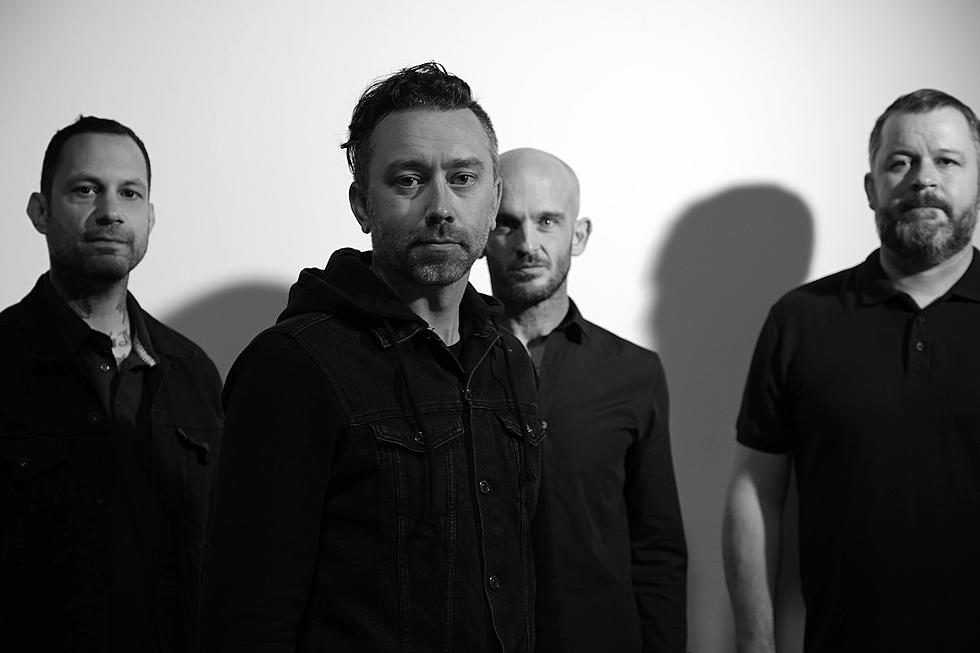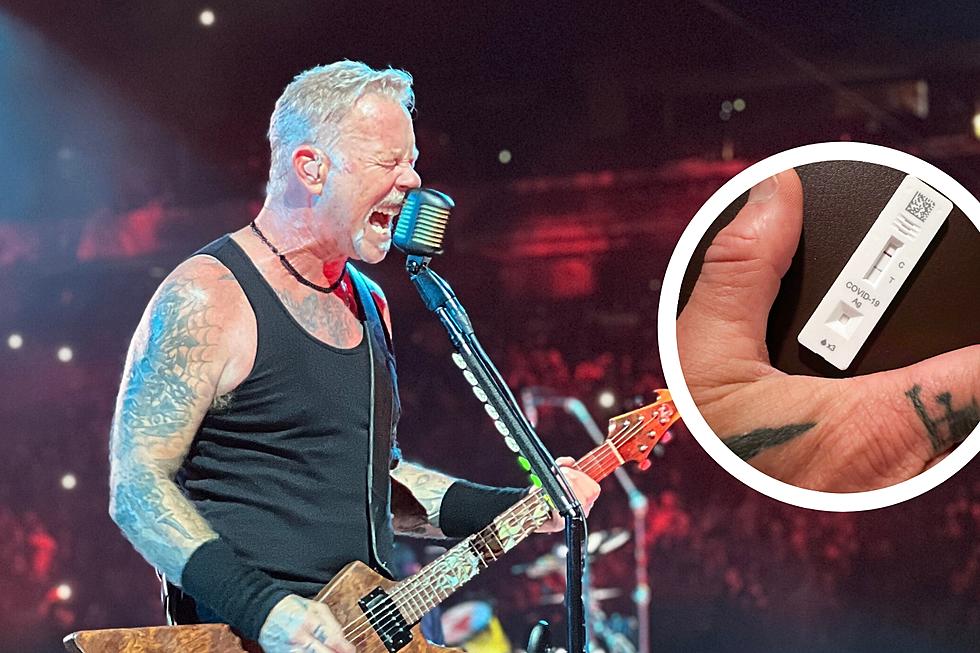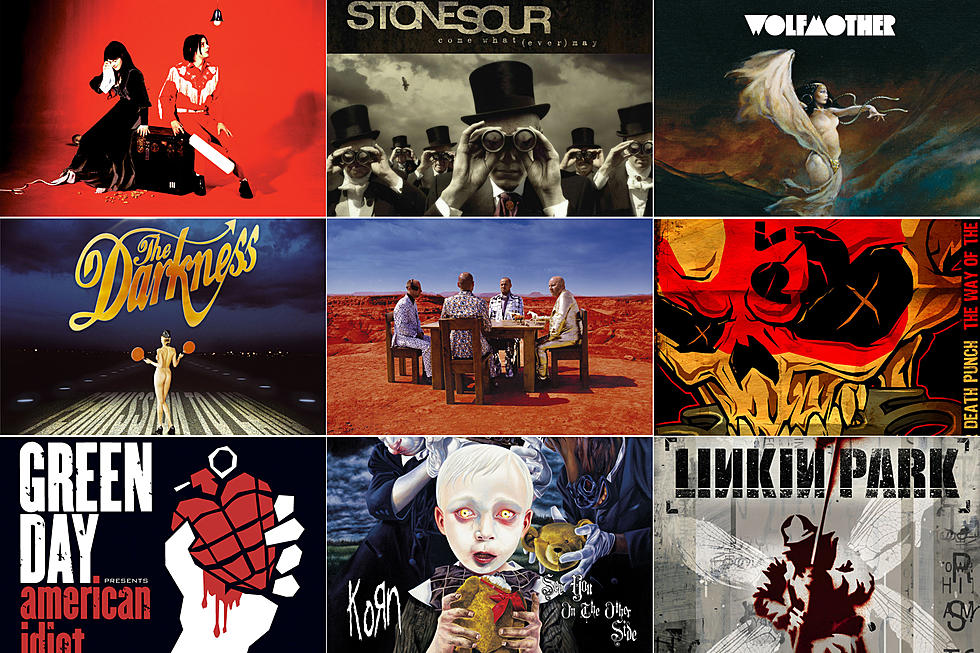
How Rise Against Finished a Tour in the Middle of the COVID Pandemic
Rise Against achieved what seemed like a rare feat this summer. They completed a tour of the United States, amid a resurgent COVID-19 pandemic, without any members of their touring party testing positive for the virus and having to leave the road. On top of that, there were no venue changes and only one cancellation.
How did they do it? Jon Dunleavy, Rise Against's tour manager who has a 30-year background in music, spoke to Loudwire this month about the recently concluded tour. The concert trek behind the punk act's Nowhere Generation ran from coast to coast in July and August.
That's right when the very contagious Delta variant of the novel coronavirus had started driving U.S. infection rates up again, something Dunleavy was well aware of as he guided his band and crew. Their one cancellation, in Louisiana, only happened because it was "at the height of their Delta outbreak," Dunleavy explains. "It was a smaller indoor show and we felt it was too much of a liability to the remaining shows."
Other than that, the tour made all its dates, which had Descendents and The Menzingers opening several. But before Rise Against could return to the road after a prolonged time away, their tour manager had to master a new skill — keeping his tour safe from COVID.
Dunleavy started by consulting with other tour managers and production staff to see how both large and small-scale tours were handling the pandemic out on the road. With that info in hand, he created his own tour's COVID protocols based on its budget.
"Much larger tours can implement mass testing, quarantining and show cancellations or postponements," Dunleavy says, "which a tour of our size just could not handle financially."
Still, he confirmed that all his bands, crews and drivers were vaccinated. "No one was allowed on tour without that," he underscores. "We made the bus part of our bubble — even immediate family was not allowed. Then really it became about keeping it tight, and when out of that bubble, being smart about wearing masks, social distancing, washing hands, etc."
As for the venues hosting the gigs, Dunleavy coordinated with promoter Live Nation, which he notes "implemented [its] own set of protocols, including having everyone rapid-test before being able to work and the wearing of masks in indoor spaces. And all our bands and crews were good about wearing masks, also — even on days off and at hotels."
Plus, "most of our shows were outside," Dunleavy adds. Still, "about a week in, it was apparent that Delta was becoming a real issue," he says. "I went back to Live Nation, and at that point, they had just updated their policies, and we worked with the venues to have mask mandates and vaccination proof or negative tests."
Playing concerts during COVID is no joke. Over the last several weeks, rockers such as Bruce Dickinson (Iron Maiden), Corey Taylor (Slipknot), Jonathan Davis (Korn), Gene Simmons and Paul Stanley (KISS), Sean Killian (Vio-Lence), Sebastian Bach (ex-Skid Row) and members of Tesla and Lynyrd Skynyrd all tested positive for the virus that sparked a global pandemic in March 2020. Musician Eric Wagner died last month after being hospitalized with COVID pneumonia.
Vaccination efforts are ongoing; 53 percent total in the U.S. are inoculated fully as of Sept. 9. But with Delta in play, the fate of many U.S. concerts and fests hangs in the balance. In the touring industry, positions such as a "COVID Compliance Officer" are becoming a reality.
"I only allowed backstage guests at three shows — LA, Austin and Chicago," Dunleavy admits. "And with just those, it became a huge job to vet and communicate with all the guests. I think if I had had to do that at all the shows, I definitely could use some help."
Other than that, "really not much has changed," he says. "The same jobs get done the same way — the main difference being everyone is wearing masks! Everyone is a little more tentative and cautious, of course. But with certain protocols from our side and Live Nation, those fears and anxieties are mostly quelled. The biggest difference is catering, with little communal eating and more cafeteria-style serving from behind barriers. Plus the lack of backstage guests."
Whatever he's doing has paid off now that Rise Against and company are home safe from the tour. (No one tested positive during the run, even with regular testing.) And during the downtime that kept him from touring, Dunleavy "took up running, cycling and yoga, took care of the house and yard while my wife worked from home, and I became pretty badass at cooking," he shares.
But the free time also gave the manager — and many others in the industry — a new perspective on the craft. And he knows the future won't be the same as the past.
"I think for a lot of industry folks, this was a bit of a wake-up call as far as realizing there is more to life than just work," Dunleavy says. "This job can be very lonely; you're away from everything that grounds you. I had not realized how much I was working without any solid time off and the mental, physical and emotional strain that no work-life balance can put on you."
He adds, "COVID is not going anywhere and we have to adapt and move forward. For me, there's a clear vision that future touring has to be way more accommodating in helping touring personnel get rest and get exercise for better mental health. I doubt this is the last pandemic we'll see, and if this industry wants to survive and people want live entertainment, then going back to the way things were is not an option."
See Rise Against's upcoming dates at riseagainst.com. To learn about COVID-19, including information on vaccination, visit the U.S. Centers for Disease Control and Prevention and World Health Organization websites.
Rise Against, "Nowhere Generation"
Rise Against's Tim McIlrath Appears on Loudwire Nights - April 2, 2021
15 Things Musicians Did to Help Us Survive 2020 Without Concerts
More From Loudwire









